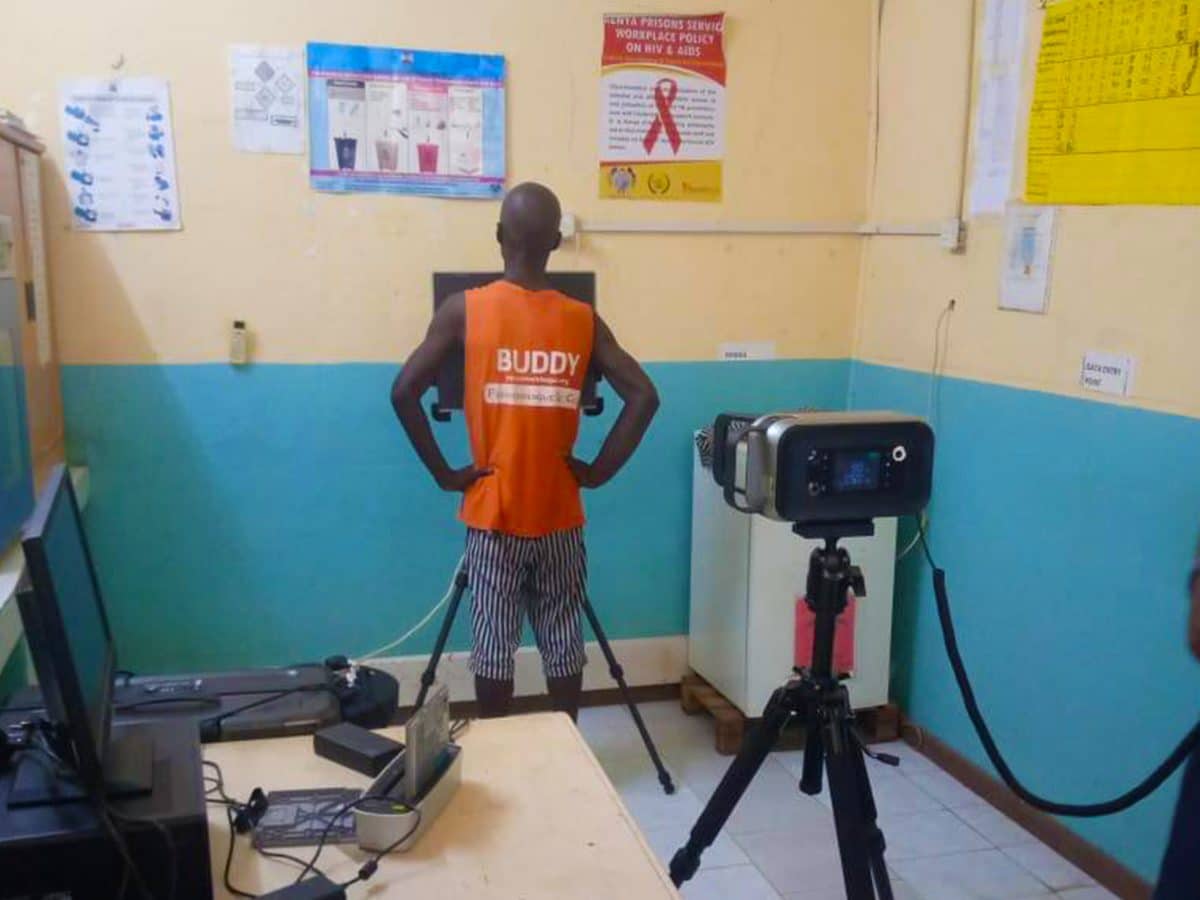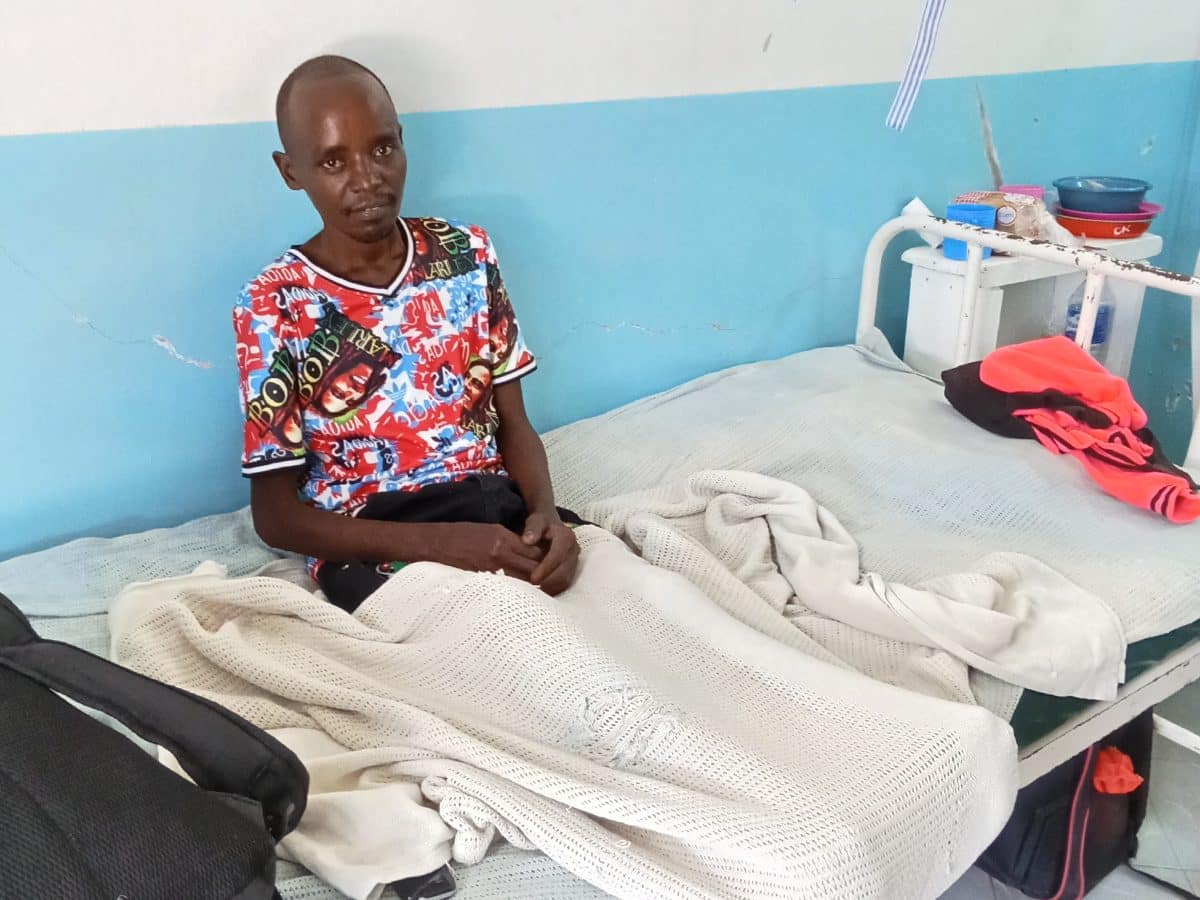At the ICAP-supported Meshualekia Health Center in Addis Ababa, Ethiopia, there has been remarkable progress in implementing an enhanced electronic medical record for patients on antiretroviral therapy (EMR-ART) system.
The enhanced EMR-ART system gives health care workers, and pharmacists access to real-time comprehensive patient data right in the pharmacy, helping clinicians make informed decisions when providing ART services to recipients of care.
Before ICAP supported the Ethiopia Ministry of Health to install the enhanced EMR-ART system in 2020, only data clerks could access patient records from the existing system that ICAP and the MOH implemented in 2018. Because of this, pharmacists were unable to make holistic informed decisions about dispensing medication for patients living with HIV, creating a gap in health care service delivery.
“Prior to the implementation of the EMR-ART pharmacy module, we were only able to dispense ART with written prescriptions. As a result, we didn’t have access to the clinical history of patients, hampering our ability to make decisions tailored to them,” said Luladey Getachew, B.Pharm, MSc, the principal pharmacist at the Meshualekia Health Center. “Since we started using the EMR-ART pharmacy module, we can generate patient clinical history to make informed decisions when serving our clients,” she said.
With funding from the U.S. President’s Emergency Plan for AIDS Relief (PEPFAR), through the Centers for Disease Control and Prevention (CDC), ICAP, in collaboration with Ethiopia’s MOH, has deployed the EMR-ART pharmacy system module with essential features that give clinicians access to patient data at health facilities to address the gaps in health service delivery to 44 PEPFAR-supported high-caseload health facilities in Addis Ababa. ICAP also supported training for 123 pharmacists from 61 facilities in the country on the applications in the EMR-ART system.
According to Getachew, the user-friendly EMR-ART system has empowered pharmacists since they know they are dispensing the proper treatment regimen for their clients. “After reviewing the medical history of each client, we determine if there is a need for a change in their regimen in consultation with the ART clinician,” she said.
Through the system, pharmacists can access and generate patient information, including viral load count, weight, age, and other relevant clinical and non-clinical information on the patient.
The system also allows the pharmacists to efficiently manage the antiretroviral therapy medication regimen by generating a monthly consumption report to quantify, forecast, and manage available and future stocks of the medication. The system has also enabled pharmacists at facility ART dispensing units to produce accurate, automated, monthly treatment reports by monitoring patient ART adherence reducing possible medication errors. Pharmacists can also trace and correct wrong drug prescriptions. The system also includes a feature that facilitates the dispensing and documentation of emergency drug requests by ART clients referred from other facilities. Pharmacists can also follow up on patient appointment schedules easily and identify lost-to-follow-up patients. Since the health center started using the system, the ART dispensing unit has traced and re-enrolled five lost clients in care in collaboration with adherence supporters.
“Right after a lost client is identified by the EMR-ART pharmacy, we will notify adherence supporters to initiate communication with the client. This new collaborative approach is possible because of been fostered between the ART dispensing unit and adherence supporters after the deployment of the ART-pharmacy module,” said Fantu Ayele, an adherence supporter who has been working at Meshualekia Health Center for over seven years.
The Meshualekia Health Center has dispensed ART and other essential medications to approximately 480 HIV clients using the newly enhanced system.
Abeba Asnakew, has been visiting the Meshualekia Health Center for her ART medication for over six years. She says the new system has made her clinical visits efficient. “Before the hospital started using this computer system, I used to queue together with other clients for long hours to receive medication. Now, we are receiving our treatments so quickly, which has saved us a lot of time.”
For health care providers in Ethiopia, the EMR-ART pharmacy system has resolved the communication gaps between data producers, service providers, and pharmacists. “The EMR-ART pharmacy module has improved the efficiency and quality of service delivery to HIV clients and strengthened communication between various service providers along the HIV continuum of care,” said Zenebe Melaku, MD, country director for ICAP in Ethiopia. “ICAP will continue to adopt strategic information management systems that allow clinicians to record, analyze, and manage patient data to improve health care.”
Beyond system deployment, ICAP continues to provide regular training and site-level support to increase the capability of clinicians to operate the EMR-ART system effectively.







